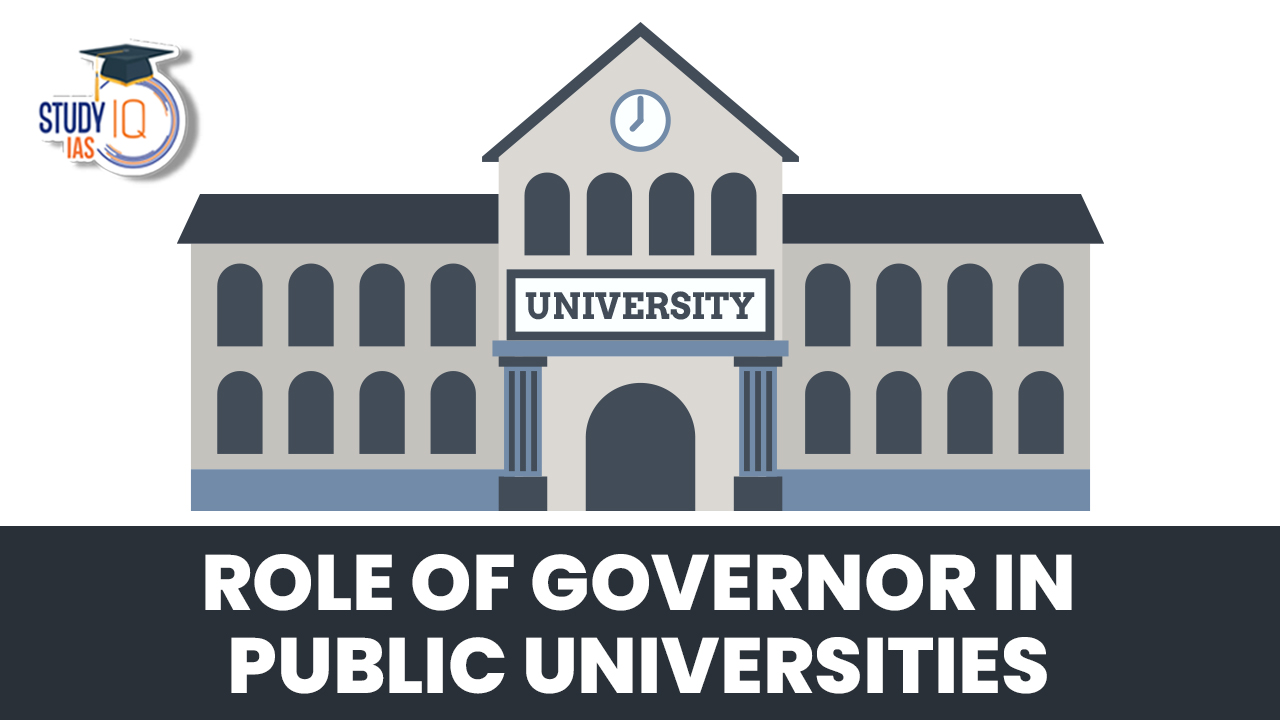Table of Contents
Context: The West Bengal assembly passed a Bill to replace governor with Chief Minister as Chancellor of state universities.
More on the News
- This is the second time that the bill was passed in the Assembly. The bill was passed last year however the Governor was yet to give his assent to the Bill.
- According to the West Bengal government, the decision was taken after considering the recommendation of the M M Punchhi Commission on Centre-State Relations, which had stated that it would not be proper to appoint the Governor as the Chancellor considering his other constitutional obligations.
- Similar developments in the past:
- In November 2022, the Kerala government brought an ordinance to remove the governor as Chancellor of State-run universities.
- In April 2022, the Tamil Nadu Legislative Assembly passed two Bills, to transfer the power of appointing the Vice-Chancellor (in public universities) from the Governor to the state government.
- In 2021, Maharashtra amended the process to appoint the Vice Chancellor of state public universities.
- In 2013, the Narendra Modi-led Gujarat government brought the Gujarat Universities Laws (Amendment) Bill, 2013, which took all the powers of the Governor as Chancellor – the bill received the Governor’s approval only in 2015.
Who is the Chancellor & what is his/her role in public universities?
- The Chancellor functions as the head of public universities and appoints the Vice-Chancellor of the university.
- Powers and functions:
- The Chancellor can declare invalid, any university proceeding which is not as per existing laws.
- In some states (such as Bihar, Gujarat, and Jharkhand), the Chancellor has the power to conduct inspections in the university.
- The Chancellor also presides over the convocation of the university and confirms proposals for conferring honorary degrees.
- The Chancellor presides over the meetings of various university bodies (such as the Court/Senate of the university).
- The Court/Senate decides on matters of general policy related to the development of the university, such as: (i) establishing new university departments, (ii) conferring and withdrawing degrees and titles, and (iii) instituting fellowships.
What are the powers of a governor in relation to public universities?
| State Universities |
|
| Central Universities |
|
| Philosophy |
|
Recommendations by various commissions
- The Sarkaria Commission:
- It acknowledged the distinction between the Governor’s constitutional role and the statutory role performed as a Chancellor, and also underlined that the Chancellor is not obliged to seek the government’s advice.
- It recommended that state legislatures should avoid conferring statutory powers on the Governor, which were not envisaged by the Constitution.
- The Punchhi Commission:
- It observed that the role of Governor as the Chancellor may expose the office to controversies or public criticism. Hence, the role of the Governor should be restricted to constitutional provisions only.


 How African Reserves Eliminated Rhino Po...
How African Reserves Eliminated Rhino Po...
 Why India Needs Its Own Economic Model?
Why India Needs Its Own Economic Model?
 Challenges in India’s Airline Sector: ...
Challenges in India’s Airline Sector: ...

























